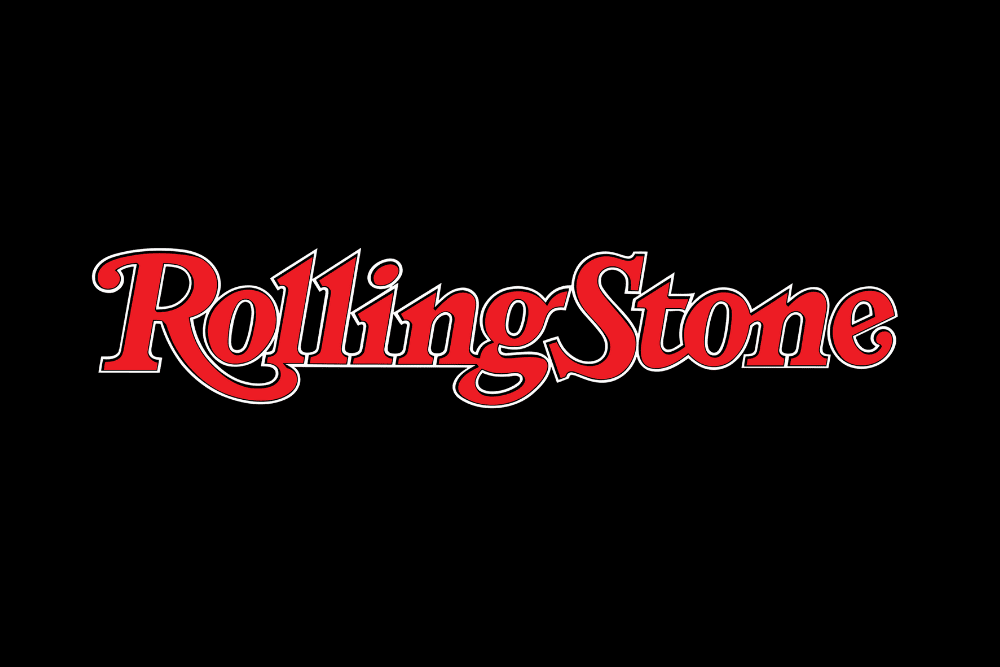When Power Becomes Predatory: Your Rights Against Executive Harassment
Yes, you can sue a CEO for sexual harassment in Los Angeles, and California law provides strong protections for employees facing this devastating workplace violation. When the person at the top of your company creates a hostile work environment through unwelcome sexual advances, inappropriate comments, or gender-based discrimination, their position of power doesn’t grant them immunity from legal consequences. Under both federal Title VII of the Civil Rights Act of 1964 (42 U.S.C. § 2000e-2(a); eeoc.gov/sexual-harassment)and California’s Fair Employment and Housing Act (FEHA) Cal. Gov’t Code § 12940(j); leginfo.legislature.ca.gov, sexual harassment by anyone in the workplace—including CEOs and other executives—is illegal when it involves employers with 15 or more employees federally, and as few as 5 employees under California law (calcivilrights.ca.gov/harassment-prevention). The emotional and professional damage from executive harassment can feel overwhelming, especially when the perpetrator controls your career trajectory, but you have powerful legal remedies available to hold them accountable (Cal. Gov’t Code § 12965(b); calcivilrights.ca.gov/complaintprocess).
💡 Pro Tip: Document every incident immediately after it occurs, including dates, times, witnesses, and exact words or actions—even seemingly minor comments can establish a pattern of harassment when coming from a CEO.
Feeling overwhelmed by CEO misconduct? Arm yourself with knowledge and legal support from MSD Lawyers. Reach out to us today by calling 213-401-0823 or contact us online to discuss your options and take back your power.

Understanding Your Legal Protections When a Sexual Harassment Lawyer in Los Angeles Can Help
California provides some of the strongest workplace protections in the nation, and a sexual harassment lawyer in Los Angeles can help you understand how these laws apply to CEO misconduct. Sexual harassment encompasses any unwelcome sexual advance, oral or physical conduct of a sexual nature, or gender-based comments that create an offensive or hostile work environment—and for the conduct to qualify legally, it must have actually offended you and would have offended a reasonable person in your situation (Title VII of the Civil Rights Act of 1964, 42 U.S.C. § 2000e-2(a); eeoc.gov/sexual-harassment. Following the landmark Bailey v. San Francisco decision, California employers must now take all complaints seriously, even those involving a single incident, which means that one egregious act by a CEO could be enough to support your claim.
The law recognizes two main types of CEO sexual harassment that a sexual harassment lawyer in Los Angeles frequently handles: quid pro quo harassment (where job benefits are conditioned on sexual favors) and hostile work environment claims (Title VII of the Civil Rights Act of 1964, 42 U.S.C. § 2000e-2(a); eeoc.gov/sexual-harassment). Because CEOs wield ultimate authority over employment decisions, their harassment often involves both types simultaneously—they might make inappropriate advances while also having the power to affect promotions, raises, or continued employment. California’s FEHA explicitly makes supervisors and executives personally liable for their own acts of harassment, meaning you can pursue claims against both the CEO individually and the company that failed to protect you.
💡 Pro Tip: California law requires employers of 5 or more employees to provide sexual harassment prevention training (Cal. Gov’t Code § 12950.1; leginfo.legislature.ca.gov; calcivilrights.ca.gov/harassment-prevention-training-requirements), so if your company failed to train the CEO or other executives, this strengthens your case against the organization.
The Step-by-Step Process for Holding a CEO Accountable
Taking legal action against a CEO requires following specific procedures that protect your rights while building the strongest possible case. The U.S. Supreme Court has emphasized that employees who fail to use their employer’s internal complaint procedures may face challenges in holding the company liable (Faragher v. City of Boca Raton, 524 U.S. 775 (1998); Burlington Industries, Inc. v. Ellerth, 524 U.S. 742 (1998); eeoc.gov/harassment), though this doesn’t protect the CEO from personal liability. Understanding each step helps you avoid procedural pitfalls that could weaken your claim.
-
Report the harassment through your company’s internal complaint procedure immediately—even if the CEO is the harasser, HR or the board of directors must be notified to give the company a chance to respond
-
File a complaint with either the EEOC or California’s Civil Rights Department (CRD) before filing a lawsuit—you don’t need a lawyer for this initial step, and the CRD makes the process accessible online
-
The EEOC requires filing within 300 days of the harassment, while California allows up to 3 years from the last incident, giving you more time to build your case
-
After receiving a “right to sue” letter from the agency, you have 90 days (EEOC) or one year (CRD) to file your lawsuit in court
-
Your attorney will likely pursue both the CEO personally and the company under theories of direct liability and negligent supervision
💡 Pro Tip: Keep copies of all complaint documentation and correspondence—if the company retaliates against you for reporting CEO harassment, this creates an additional legal claim with its own damages.
Securing Justice with a Sexual Harassment Lawyer in Los Angeles
When pursuing a CEO for sexual harassment, working with an experienced sexual harassment lawyer in Los Angeles becomes essential for navigating the complex power dynamics and potential corporate resistance you’ll face. According to EEOC Enforcement Guidance on Harassment in the Workplace, employers can be held strictly liable when harassment by top executives results in tangible employment actions like termination or demotion, and they can only avoid liability for hostile work environment claims if they prove they took reasonable preventive measures and you unreasonably failed to use complaint procedures. MSD Lawyers understands these nuances and has the experience to handle cases against powerful executives who often have significant resources for their defense.
The potential compensation for CEO sexual harassment cases reflects both the severity of executive misconduct and the broader impact on your career. While federal law caps combined compensatory and punitive damages based on company size—ranging from $50,000 for smaller employers to $300,000 for companies with over 500 employees (42 U.S.C. § 1981a(b)(3); eeoc.gov/remedies)—California state claims have no such limits, potentially allowing for much higher awards (Cal. Gov’t Code § 12965(b); leginfo.legislature.ca.gov) when filing under FEHA. Your sexual harassment lawyer in Los Angeles will typically pursue multiple damage categories including back pay for lost wages, front pay for future losses, compensation for emotional distress, and in cases of particularly egregious CEO behavior, punitive damages designed to punish the company for allowing executive misconduct (Cal. Civ. Code § 3294(a)–(b); leginfo.legislature.ca.gov).
💡 Pro Tip: Many CEO harassment cases settle before trial to avoid publicity, but having an attorney experienced in litigation ensures you’re prepared for either outcome and maximizes your negotiating position.
The Unique Challenges of CEO Sexual Harassment Cases
CEO sexual harassment cases present distinct challenges that differ significantly from typical workplace harassment claims, requiring specialized legal strategies. When the harasser sits at the top of the corporate hierarchy, traditional reporting structures break down—who investigates the investigator, and how can you trust an internal process controlled by your harasser’s subordinates? These cases often involve sophisticated perpetrators who understand legal boundaries and may carefully orchestrate their harassment to avoid leaving evidence, making documentation and witness testimony even more critical (Cal. Gov’t Code § 12940(j)–(k); leginfo.legislature.ca.gov; Title VII of the Civil Rights Act of 1964, 42 U.S.C. § 2000e-2(a); eeoc.gov/sexual-harassment; calcivilrights.ca.gov/harassment-prevention).
Power Imbalances and Retaliation Risks
The extreme power differential in CEO harassment cases creates unique vulnerabilities that extend beyond typical workplace harassment scenarios. A CEO’s influence reaches every corner of the organization and often extends into industry networks, potentially affecting your future career prospects even after leaving the company, conduct that can constitute retaliation under both federal and state law (Title VII of the Civil Rights Act of 1964, 42 U.S.C. § 2000e-3(a); eeoc.gov/retaliation; Cal. Gov’t Code § 12940(h); leginfo.legislature.ca.gov).. This reality makes many victims hesitate to come forward, fearing not just job loss but complete professional blacklisting. However, California law provides robust anti-retaliation protections, and courts recognize these power dynamics when evaluating harassment claims against executives, often viewing CEO misconduct more seriously due to the inherent coercion involved.
💡 Pro Tip: Consider requesting whistleblower protections if you’re reporting CEO misconduct that might also involve financial irregularities or board deception—this can provide additional legal safeguards.
Maximizing Your Recovery: Understanding Sexual Harassment Lawsuit Compensation
The compensation available in CEO sexual harassment cases often exceeds typical workplace harassment claims due to the severity of executive misconduct and its profound impact on victims’ careers. Understanding sexual harassment lawsuit compensation categories helps you and your attorney build a comprehensive damage claim that reflects all the ways CEO harassment has harmed you. Beyond obvious economic losses like missed promotions or forced resignation, courts increasingly recognize the long-term career damage when executives abuse their power, including industry blacklisting and lost professional opportunities.
Economic and Non-Economic Damages
Successful CEO harassment claims can recover multiple damage types that reflect both tangible and intangible losses. Economic damages include back pay from the time of harassment through trial, front pay for future lost earnings if you cannot return to your position, lost benefits including stock options or bonuses controlled by the CEO, and medical expenses for therapy or treatment resulting from the harassment. Non-economic damages for emotional distress often form a significant portion of CEO harassment settlements, as courts recognize the unique psychological impact when someone with ultimate corporate authority violates your dignity and safety (California Civil Jury Instructions (CACI) No. 2433 – Emotional Distress Damages; courts.ca.gov). Recent California cases have awarded substantial punitive damages against companies that ignored CEO misconduct, with juries sending strong messages about corporate accountability (Cal. Civ. Code § 3294(a)–(b); leginfo.legislature.ca.gov; Weeks v. Baker & McKenzie (1998) 63 Cal.App.4th 1128).
💡 Pro Tip: Keep records of all harassment-related expenses, including therapy costs and job search expenses—these concrete losses strengthen your damage claims and demonstrate the real-world impact of CEO misconduct.
Frequently Asked Questions
Common Legal Concerns About Suing Executives
Many employees facing CEO harassment worry about the David-versus-Goliath nature of challenging someone with significant power and resources. These concerns are valid but shouldn’t prevent you from seeking justice—California law provides strong protections, and experienced attorneys know how to level the playing field against executive defendants. Experienced employment attorneys know how to level the playing field against executive defendants by leveraging these statutes and the California Civil Rights Department’s enforcement mechanisms (calcivilrights.ca.gov/complaintprocess).
💡 Pro Tip: Most sexual harassment attorneys work on contingency, meaning you don’t pay unless you win, removing financial barriers to challenging powerful executives.
Understanding Your Options and Next Steps
The path forward after CEO harassment requires careful planning and strategic decision-making. Whether you’re still employed, recently terminated, or forced to resign due to intolerable conditions, different legal strategies apply to maximize your recovery while protecting your professional future.
💡 Pro Tip: Even if you signed a severance agreement with a release, it may not bar sexual harassment claims—California law limits the enforceability of such releases in harassment cases (Cal. Gov’t Code § 12964.5; leginfo.legislature.ca.gov) and under the “Silenced No More Act” (SB 331, effective Jan. 1, 2022).
1. Can I sue a CEO personally for sexual harassment, or just the company?
Under California’s FEHA, supervisors and executives remain personally liable for their own acts of harassment, meaning you can sue both the CEO individually and the company (Cal. Gov’t Code § 12940(j)(3); leginfo.legislature.ca.gov). This personal liability is automatic—the CEO cannot hide behind corporate protections for their own misconduct. The company faces separate liability for failing to prevent the harassment or responding inadequately to complaints (Cal. Gov’t Code § 12940(k); calcivilrights.ca.gov/harassment-prevention).
2. What if the CEO owns the company or sits on the board of directors?
CEO ownership or board membership doesn’t provide immunity from sexual harassment claims. In fact, it may strengthen your case by demonstrating the company’s failure to maintain proper oversight. When the harasser has ownership interests, courts often view the company and individual as more intertwined, potentially increasing corporate liability for failing to prevent executive misconduct.
3. How much compensation can I receive for CEO sexual harassment?
While federal claims cap damages at $50,000 to $300,000 depending on company size, California FEHA claims have no damage caps, allowing potentially millions in recovery for severe CEO harassment. Compensation includes back pay, front pay, emotional distress damages, punitive damages, and attorney fees. CEO cases often result in higher settlements due to the executive’s position and the company’s motivation to avoid publicity.
4. Do I need witnesses to prove CEO sexual harassment?
While witnesses strengthen any harassment case, they’re not required—your testimony alone can establish harassment if credible. CEO harassment often occurs privately, and courts understand this dynamic. Document everything contemporaneously, save all communications, and remember that patterns of behavior toward multiple employees can support your claims even without direct witnesses to your experiences.
5. What if I’m afraid of industry retaliation for suing a prominent CEO?
Retaliation fears are legitimate but shouldn’t stop you from seeking justice. California law prohibits blacklisting and provides remedies for post-employment retaliation. Many cases settle with confidentiality agreements protecting both parties. Additionally, standing up to executive harassment often resonates positively with ethical employers who value workplace safety over protecting powerful individuals.
Work with a Trusted Sexual Harassment Lawyer
CEO sexual harassment cases demand attorneys with specific experience handling claims against powerful executives and navigating corporate defense strategies. The right legal representation understands both the legal complexities and the personal courage required to challenge executive misconduct. Look for attorneys who have successfully pursued claims against high-level executives and understand the unique dynamics of power-based harassment. Your attorney should offer both aggressive advocacy and sensitive support, recognizing that CEO harassment cases involve not just legal strategy but also career preservation and personal healing.
If CEO misconduct has left you in the lurch, MSD Lawyers is here to help you navigate the legal waters. Don’t let workplace harassment hold you back; reach out today at 213-401-0823 or contact us for a consultation. Let’s chart a course towards justice together.












